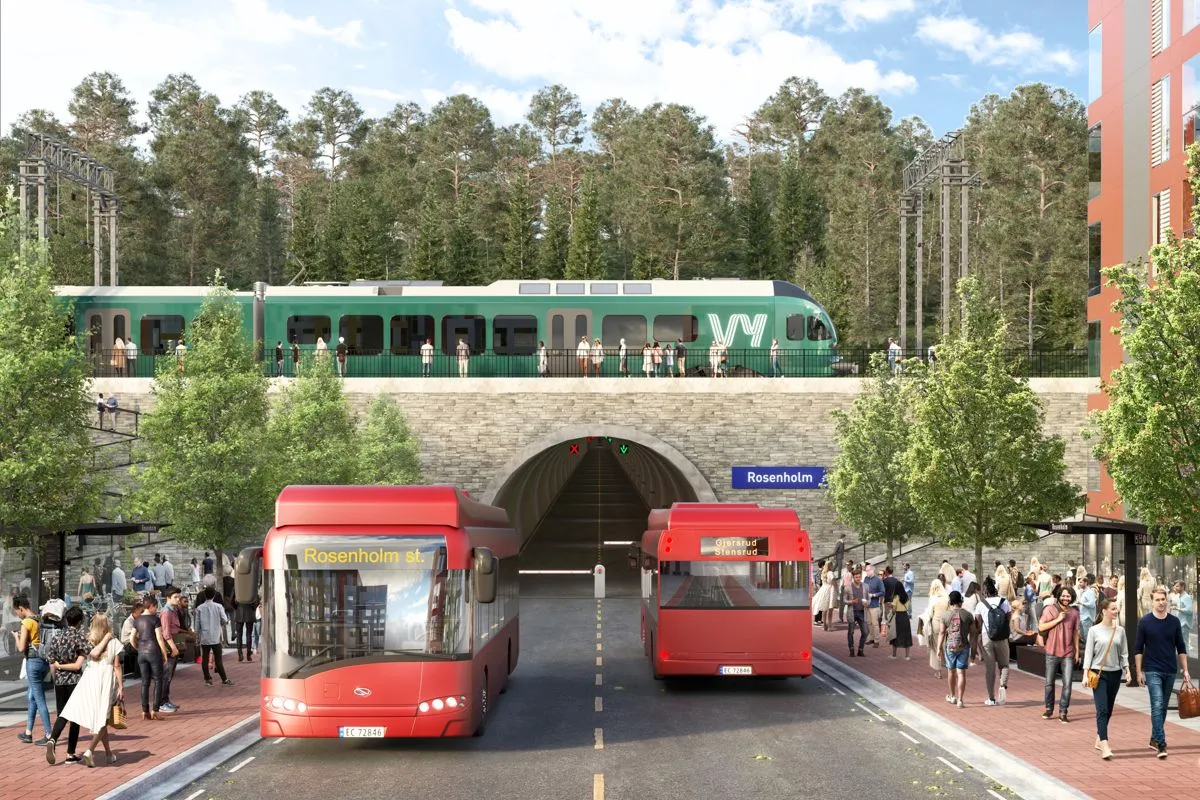
Housing company OBOS says it will consider building a tunnel for electric buses if that will speed development of an area of the capital city.
OBOS, Oslo Bolig Og Sparelag, also says it would be paid for by the developers, according to a report in the Norwegian business newspaper Byggeindustrien.
Oslo Bolig Og Sparelag constructs and manages cooperative housing units and condominiums in Norway. The company builds, maintains and renovates houses and apartments; and operates and maintains commercial properties.
In Oslo, the developer wants to create a new 10,000 home community which would be served by public transportation through a 2.6km-long tunnel. The tunnel would run from Gjersrud-Stensrud to Rosenholm station in the district of Søndre Nordstrand.
The cost of the tunnel would be just under €200 million. If it gets the political go-ahead, then the tunnel and the first homes could be ready in 10 years, said Daniel Kjørberg, chief executive of OBOS.
“We have experience from building tunnels in this area and believe that a standard road tunnel is a good and cost-effective solution with few natural interventions,” noted Kjetil Vikane, a director with AF Gruppen which did a preliminary investigation into the possibility of construction.
He said the tunnel need not a be of complicated design and likely would be a straight, asphalted tunnel in well-known ground conditions.







